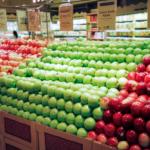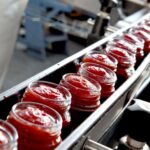In an effort to reduce plastic use, New York City will begin fining restaurants and food delivery services that provide plastic utensils and individual condiment packages such as soy sauce without customers specifically requesting them. In late June of 2023, New York City announced implementation of the “Skip the Stuff” bill, which aims to reduce plastic use by issuing fines to restaurants and third-party food delivery services who provide unsolicited plastic cutlery, straws, and condiment packets. With popularity of take-out food and meal delivery steadily rising, the timing for such measures is opportune and will encourage businesses and consumers to be more conscious of plastic use habits. And with over half the plastic utensils discarded, skipping the single use plastics should benefit the environment.
Meetings were held in August and September to determine a fine structure. Food vendors and delivery services have a period to adapt before fines begin in July 2024. Currently, similar policy models are being considered by over thirty other cities as a reduction measure for single use plastics.

Julie Holt, Director, Global Advisory Services
Julie Holt is a subject matter expert in the areas of food and beverage, additives, and regulatory strategy. She has beverage industry expertise and currently provides consulting support across multiple beverage categories. Ms. Holt has more than 25+ years of regulatory experience in the food and food ingredients industries and managed her own advisory firm, Scientific & Regulatory Solutions LLC, prior to joining FoodChain ID. As a consultant, Julie supported several food and beverage clients including a Fortune 50 company. Julie has provided global regulatory knowledge covering more than 200 countries. Her consulting efforts have supported global regulatory needs, R&D projects, sustainability goals, and innovation initiatives. Julie holds a Bachelor of Science in biology (emphasis in cellular / molecular biology) and organic chemistry and a master’s certificate in international food law from Michigan State University. She has also completed 30 hours of graduate studies in comparative biology and genetics and continues graduate studies, currently in pharmacology and clinical chemistry courses.










